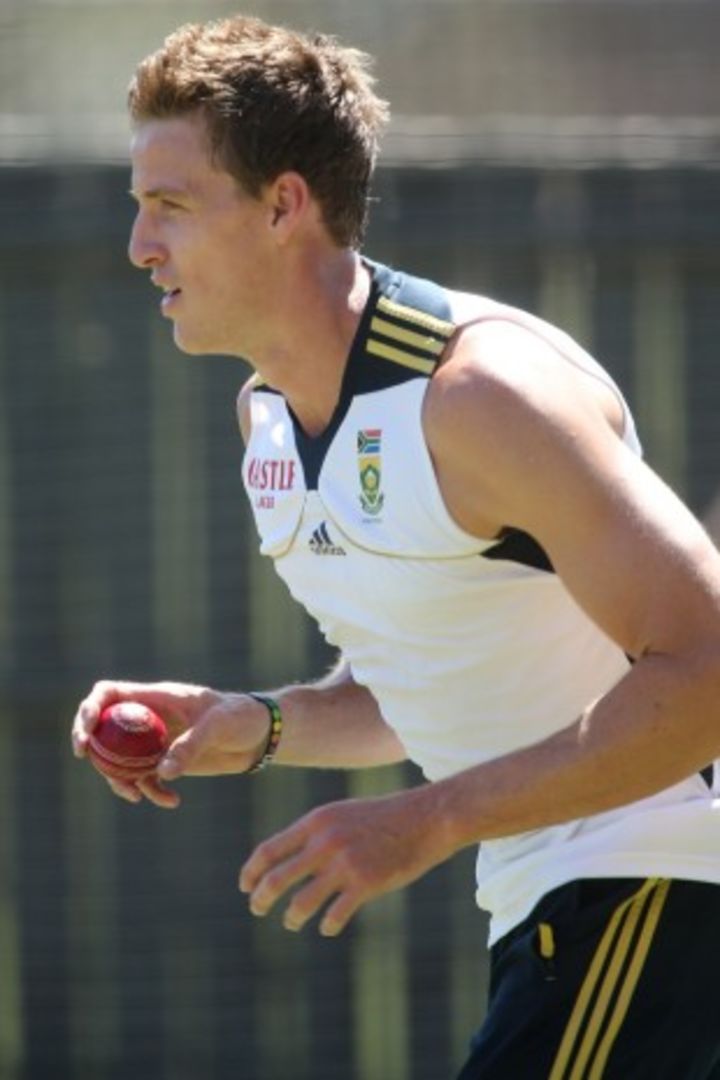Adaptable South Africa face Adelaide adjustment
South Africa struggled with the conditions at the Gabba and they will hope not to be similarly surprised at Adelaide Oval

One of the pillars on which South Africa's six-year unbeaten run away from home has been built is adaptability. On the sub-continent, they took on spin with all the footwork and flair needed; in England, they had the quicks to take advantage of seamer-friendly and swinging conditions; and the last time they were in Australia, they had the batsmen to negate the home attack.
This time, they would have said they have all that and more. The current squad has the potential to field a seven-man batting line-up with two in reserve, includes four frontline seam bowlers, each of whom offers something different, a legspinner and a left-arm slow bowler on the bench. The variety led bowling coach Allan Donald to claim it was the best South African attack he had ever seen but they looked a few shades off that in Brisbane.
On a pitch that delivered almost none of what it promised, the much-hyped fast bowlers were reduced to nothing but workhorses. Most of the team, including batsmen Alviro Petersen, Hashim Amla and vice-captain AB de Villiers, admitted South Africa expected more from the surface which drove their decision to leave out Imran Tahir and opt for a pace battalion.
Quietly, Australia may have been chuckling that their opposition misread conditions, having not played a Test at the Gabba since before isolation. It was an error that proved even in an age where information is easily accessible thanks to technology, there is still great value in experience. Morne Morkel suggested as much ahead of the second match in Adelaide.
"There is a lot of talk about the ground and the wicket and that sort of thing," Morkel said. "For me, it's important to listen to those sorts of things and to try and learn from them but also to experience those things for myself. As soon as you get caught up in different stories, you could go down the wrong avenue."
No-one in South Africa's current touring party had ever played a Test at the Gabba before and the coach Gary Kirsten said they were scrambling to get "information from as many sources as possible" in the lead-up. The biggest hint they could have taken was England's Ashes score in 2010-11, when they piled on 1 for 517 in the second innings, but it seemed that South Africa chose to focus on the "juice," that Graeme Smith spoke about at the Gabba instead.
They will not want to appear similarly ill-informed in Adelaide, where they also have limited first-hand knowledge to draw on. At least Jacques Kallis and Kirsten have played Test cricket at the venue, when South Africa last appeared there in 2001, and Donald took five wickets there in 1994, but neither Morkel nor Steyn have played a Test there, while Vernon Philander and Imran Tahir have not been to Australia as international cricketers before.
Philander has already battled to some degree. He is wicket-less on this tour, something that a source close to the team has put down to batsmen starting to play him better by leaving him more rather than any glaring fault of his own. Tahir bowled extensively in the tour match and is expected to make a comeback into the starting XI, which will give the quicks some rest and provide another option.
While the team has not been announced, a frontline spinner is expected to play, and it is likely to be Tahir ahead of Robin Peterson. "It will be great to see Imran back, he is a quality guy, quality player and also attacking," Morkel said. "Imran has been bowling well in nets and working hard on his game."
On a track that is known to deteriorate and offer up inconsistent bounce as the match wears on, both Tahir and Morkel could come into play in the latter stages. With that only being hearsay for Morkel for now, he said he wouldn't change much about his approach ahead of the match and would concentrate on "creating more pressure" on the Australian line-up and stick to basics like "starting well in that first 20 balls".
One of South Africa's other goals is to ensure that no more wickets fall off no-balls. They overstepped 23 times in Brisbane and although Morkel was only responsible for two of those, both would have resulted in dismissals.
"It's about having discipline. We've been working on it," Morkel said with shake of the head after being reminded of his no-ball history, most recently at Lord's in August, when Matt Prior was given a reprieve after being caught off a Morkel no-ball. "It's a bitter pill to swallow especially because you know the quality of the batsmen and you don't want to give them another chance. When it happens to me, I try to get on with the job and think that if can get the batsman out once, I can do it twice."
Firdose Moonda is ESPNcricinfo's South Africa correspondent
Read in App
Elevate your reading experience on ESPNcricinfo App.